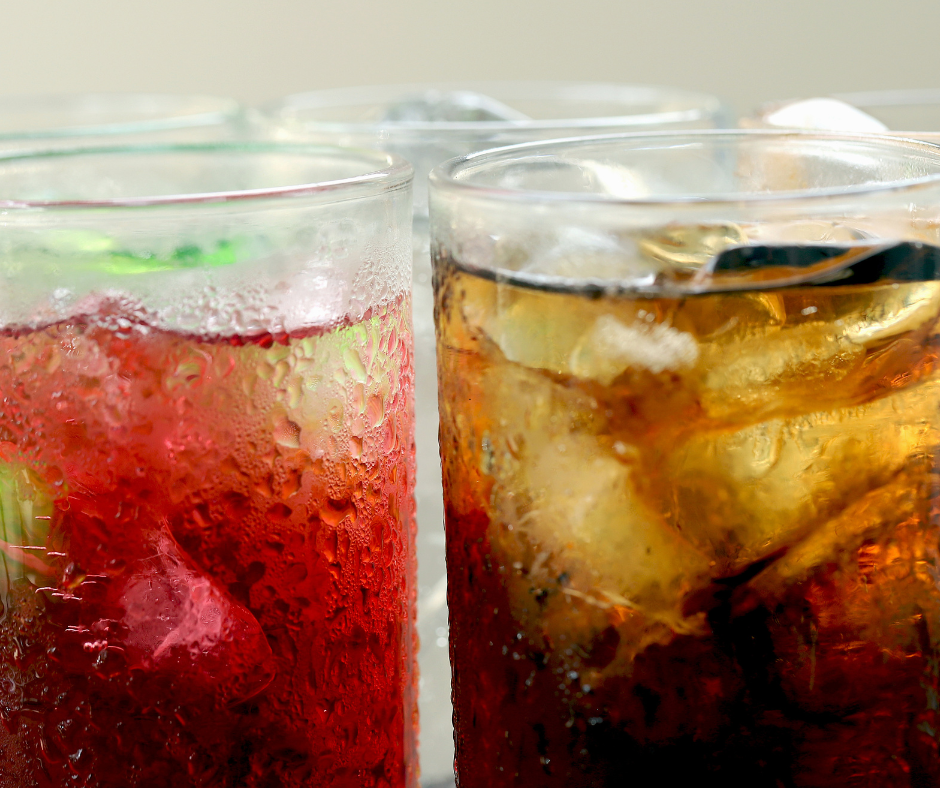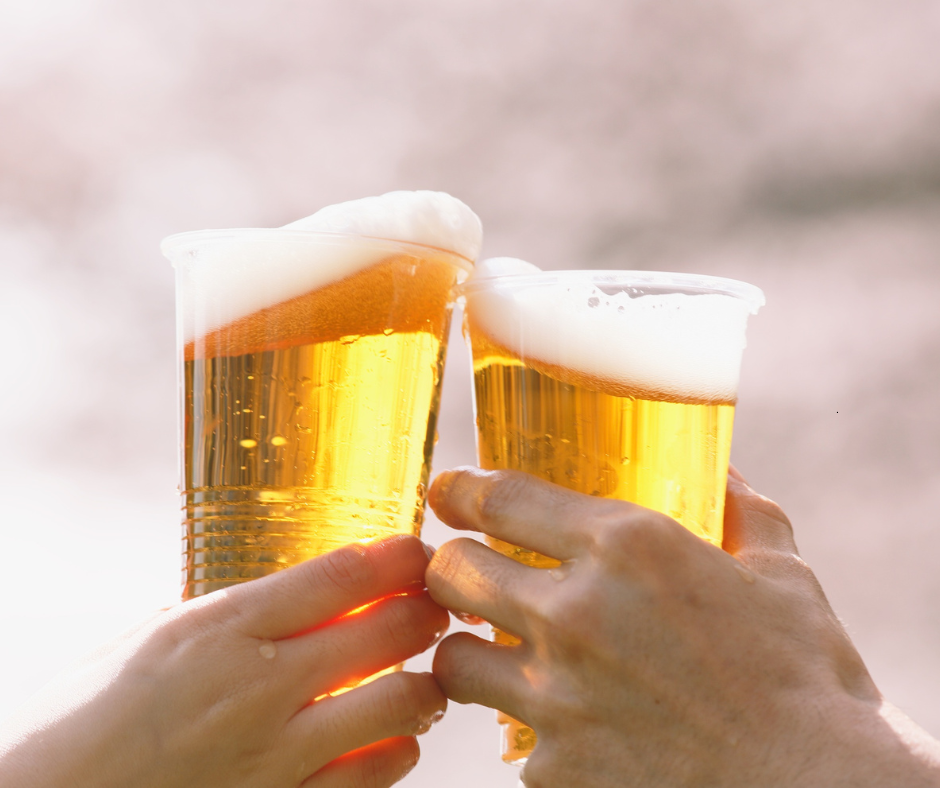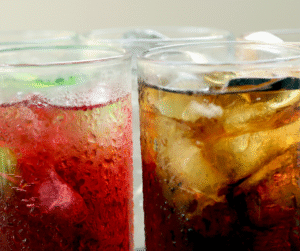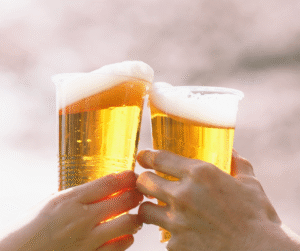Most beer quality complaints start with CO₂, not the brew itself. The gas that carbonates and dispenses every pint is also one of the most overlooked sources of quality problems in bars and breweries.
CO₂ is vital for maintaining carbonation, pressure, and mouthfeel. Yet, when its quality slips, even slightly, it can ruin taste, aroma, and presentation. A pint that looks flat, tastes off, or pours with excess foam is often a symptom of poor gas purity rather than a brewing mistake.
In draught systems, even small amounts of contamination or incorrect pressure can cause noticeable defects. Hydrogen sulphide and hydrocarbons can create unpleasant odours. Carbonyl sulphide can leave a chemical aftertaste. Over time, these trace impurities damage not just the beer but your brand’s reputation.
Understanding how CO₂ affects draught beer performance helps you diagnose faults before they reach your customers. This article explains the most common CO₂-related beer problems, how to identify them, and how to prevent them using proven gas filtration solutions such as Sure Purity’s Carboguard Mini and Carboguard Craft.
Why CO₂ Quality Plays Such a Crucial Role
CO₂ does more than keep beer fizzy. It performs two essential jobs in every draught system – it carbonates the beer and provides the pressure needed to push it from keg to tap. When CO₂ quality drops, both functions suffer, leading to visible and sensory defects.
The Dual Role of CO₂
In the keg, CO₂ maintains the beer’s carbonation level and prevents it from going flat. In the dispense line, it acts as the driving force that delivers beer smoothly through taps and nozzles. The right balance of pressure and purity ensures consistent flavour, stable foam, and an appealing pour.
Even a slight change in gas quality can disrupt this equilibrium. If the CO₂ contains contaminants, it can alter carbonation rates, affect head retention, or introduce strange odours and tastes.
Understanding “Beverage-Grade” CO₂
Many brewers assume that “beverage-grade” CO₂ is perfectly pure. In reality, it’s only required to meet certain industrial specifications, which allow trace impurities. These trace compounds are often measured in parts per million – small enough to meet compliance standards but still strong enough to affect beer quality.
So, while a gas supplier may deliver CO₂ that technically meets ISBT or EIGA standards, it can still contain contaminants that impact flavour and aroma. This is why many breweries experience off-tastes even when their gas appears compliant.
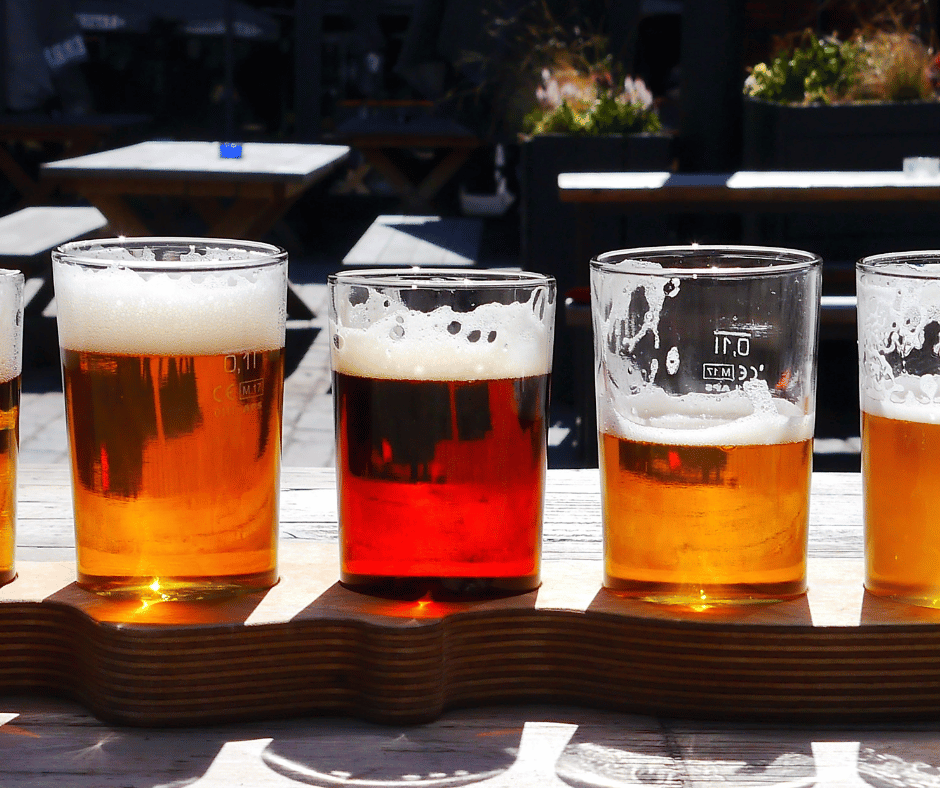
Trace Contamination and Its Effects
Common contaminants include hydrocarbons, hydrogen sulphide, and carbonyl sulphide (COS). Each can have a distinct sensory impact:
- Hydrocarbons can create plastic or oily flavours.
- Hydrogen sulphide produces a sulphurous “rotten egg” smell.
- Carbonyl sulphide can cause a burnt or chemical aftertaste.
These issues often appear without warning and can persist even after line cleaning or maintenance, making them difficult to trace.
The Most Common Draught Beer Problems Caused by CO₂
Many draught beer problems can be traced back to CO₂. When gas purity, pressure, or flow are even slightly off, the result is immediate – inconsistent carbonation, poor presentation, and changes in taste. Understanding the most common CO₂-related issues helps identify faults before they reach your customers.
1. Flat Beer or Poor Carbonation
Flat beer is one of the most recognisable signs of CO₂ problems. It usually occurs when pressure is too low, there’s a leak in the system, or the CO₂ is contaminated.
Contaminated gas affects the beer’s natural equilibrium. Impurities can reduce CO₂ absorption, meaning the gas doesn’t dissolve properly into the liquid. The result is a pint that looks dull, tastes lifeless, and loses its sparkle quickly.
Signs of under-carbonation include a thin mouthfeel, muted aroma, and a head that disappears within seconds. Even when the beer itself is brewed perfectly, these faults can make it seem stale or poorly handled.
2. Excessive Foaming or Over-Carbonation
Too much foam is just as problematic as too little. Over-carbonation often stems from excessive pressure, incorrect gas blend ratios, or moisture trapped in the gas lines.
Contaminated or “wet” CO₂ can create turbulence as the beer leaves the keg, resulting in uncontrollable foam. Every wasted pint represents lost revenue, slower service, and frustrated customers.
While adjusting pressure settings may help, it won’t solve the underlying cause if the CO₂ supply itself is impure. Regular testing and filtration prevent the issue before it starts.
3. Off-Flavours and Odours
One of the most damaging effects of CO₂ contamination is the introduction of off-flavours. Compounds such as hydrogen sulphide and aromatic hydrocarbons create strong odours similar to burnt matches, rubber, or solvent.
Even at low levels, these compounds can overwhelm the beer’s intended aroma profile. What should smell crisp and inviting instead becomes unpleasant or chemical. Customers quickly notice, and once that reputation spreads, it’s hard to recover.
Filtration systems like Sure Purity’s Carboguard Mini and Carboguard Craft are designed to remove these trace contaminants, restoring a clean, neutral gas supply that protects the beer’s flavour integrity.
4. Shortened Shelf Life and Oxidation
Poor CO₂ quality doesn’t just affect the taste of fresh beer – it shortens its lifespan too. Traces of oxygen or other impurities in the gas can speed up oxidation, leading to premature staling and colour changes.
Oxidised beer develops a flat, papery flavour and loses its bright, fresh character. For breweries and bars, this means higher waste levels and greater costs.
By removing oxygen and other contaminants, our filtration systems help extend product shelf life and preserve consistency from keg to glass. This added protection reduces returns, spoilage, and downtime across dispense operations.
5. Inconsistent Dispense Quality
Inconsistent gas quality leads to unpredictable pours. One day the beer flows perfectly; the next, it’s foamy, flat, or slow. These fluctuations are often linked to unstable gas pressure or variable CO₂ purity.
Customers expect every pint to taste and pour the same. When it doesn’t, confidence drops, and repeat sales with it.
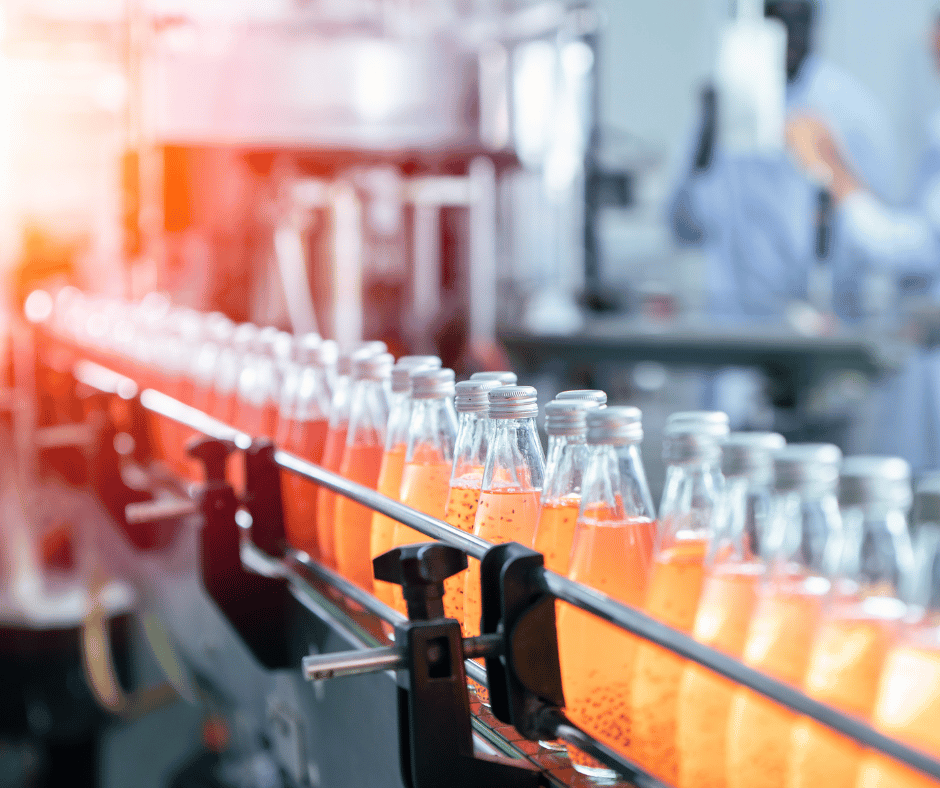
How to Diagnose CO₂-Related Problems
Identifying CO₂-related issues early can save both time and money. Most problems reveal themselves through clear sensory or performance clues. With a few simple checks, technicians and bar managers can pinpoint the cause before beer quality is compromised.
Quick Checks You Can Perform
- Observe foam patterns: Watch how the beer settles after pouring. Large, uneven bubbles or a collapsing head often suggest gas pressure or purity issues. A balanced pour should have a tight, creamy head that lasts throughout the drink.
- Smell and taste for unusual notes: Sulphur or “chemical” odours are signs of hydrogen sulphide, carbonyl sulphide, or hydrocarbon contamination. Even small amounts can overpower the intended flavour.
- Check gas pressures and regulators: Incorrect pressure settings can lead to over-carbonation or flat pours. Ensure regulators are functioning correctly and set to manufacturer-recommended levels.
- Inspect CO₂ cylinders and connections: Always verify that cylinders display beverage-grade CO₂ markings and supplier quality labels. Poor storage or handling may introduce contaminants that degrade gas quality.
- Review recent changes: If you’ve switched gas suppliers, installed new lines, or carried out maintenance, test the CO₂ supply to rule out contamination.
When to Test Further
If the above checks don’t resolve the problem, it’s worth conducting a formal CO₂ quality test. Testing analyses the gas for key contaminants such as hydrogen sulphide, hydrocarbons, and moisture.
Pairing testing with multi-stage CO₂ filtration offers the most reliable protection. Filtration systems, like Sure Purity’s Carboguard range, remove impurities in real time, ensuring only clean, odour-free gas enters the beer dispense system.
By combining observation, testing, and filtration, breweries and hospitality venues can prevent most CO₂-related faults before they reach the glass.
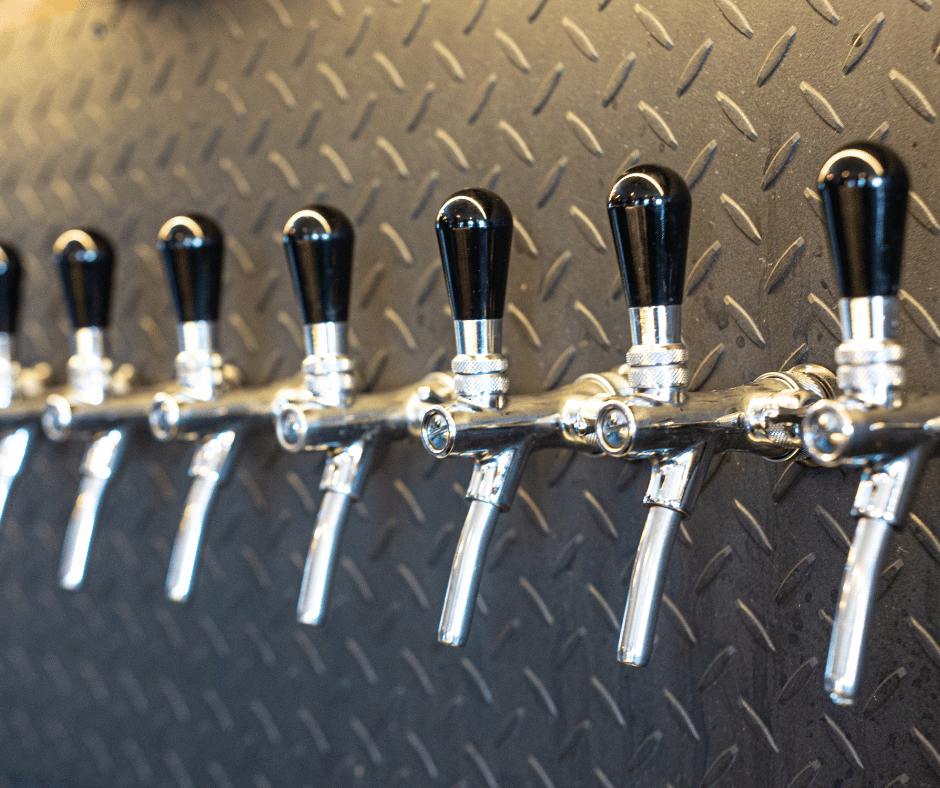
Benefits of Solving CO₂-Related Beer Problems
When CO₂ purity improves, every part of the draught system performs better – from carbonation stability to customer satisfaction. The benefits go far beyond taste alone.
Better Taste and Aroma
Pure CO₂ ensures beer tastes as the brewer intended. Removing trace contaminants such as hydrogen sulphide, carbonyl sulphide, and hydrocarbons eliminates chemical or sulphurous notes that distort flavour. Clean gas also preserves the delicate aromas that define craft and premium beers, allowing drinkers to enjoy the full sensory experience.
Reduced Waste and Downtime
Gas-related issues often lead to wasted beer, repeated line cleaning, and slower service. By maintaining high CO₂ quality, each keg lasts longer, pours consistently, and requires less troubleshooting.
Our Carboguard filtration systems reduce the need for reactive maintenance, keeping equipment running smoothly and cutting costly downtime.
Fewer Customer Complaints
Off-flavours and inconsistent pours are among the main reasons for customer dissatisfaction. Preventing CO₂ contamination protects against both. When every pint looks, smells, and tastes right, confidence grows – both behind the bar and across your customer base.
Stronger Brand Reputation
For breweries, bars, and hospitality chains, reputation depends on consistency. Maintaining CO₂ purity ensures every pour reflects the same commitment to quality. A reliable product keeps customers loyal and enhances brand credibility in a competitive market.
Sustainable Operations and Lower OPEX
Clean CO₂ contributes to more sustainable operations. Fewer rejected batches, reduced product waste, and lower maintenance requirements all lead to cost savings. Our products are designed to extend service intervals and reduce operational expenditure (OPEX) while minimising environmental impact – a smarter, cleaner approach to beverage quality control.
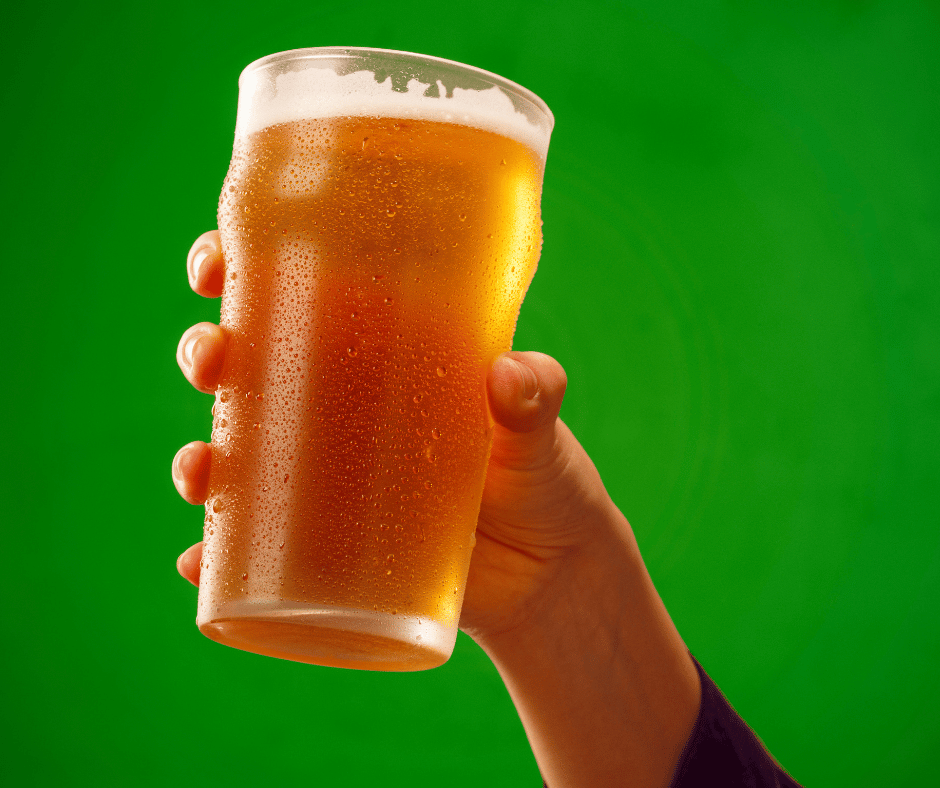
Final Thoughts
Gas quality is one of the most overlooked factors in draught beer performance. While brewers and bar teams focus heavily on recipes, cleanliness, and equipment, CO₂ purity often goes unchecked. Yet it plays a decisive role in every pour – shaping carbonation, flavour, and foam.
Even the highest-quality beer can be ruined by contaminated or poorly regulated gas. A small amount of hydrogen sulphide or hydrocarbon in the CO₂ supply can undo months of brewing precision. By managing gas quality proactively, you protect not just the beer, but your brand’s reputation and customer experience.
Modern filtration makes this simple. Sure Purity’s Carboguard range provides continuous protection against CO₂ contamination, removing the trace impurities that compromise taste, aroma, and dispense quality. Designed for breweries, bars, and hospitality venues, it delivers consistent, clean gas across every pint.
Contact us today to find out how we can help you.

